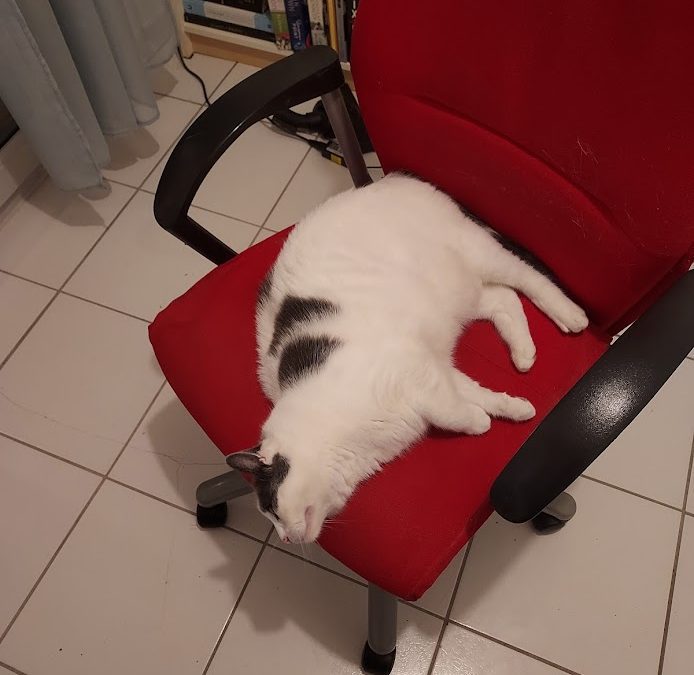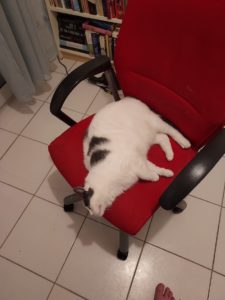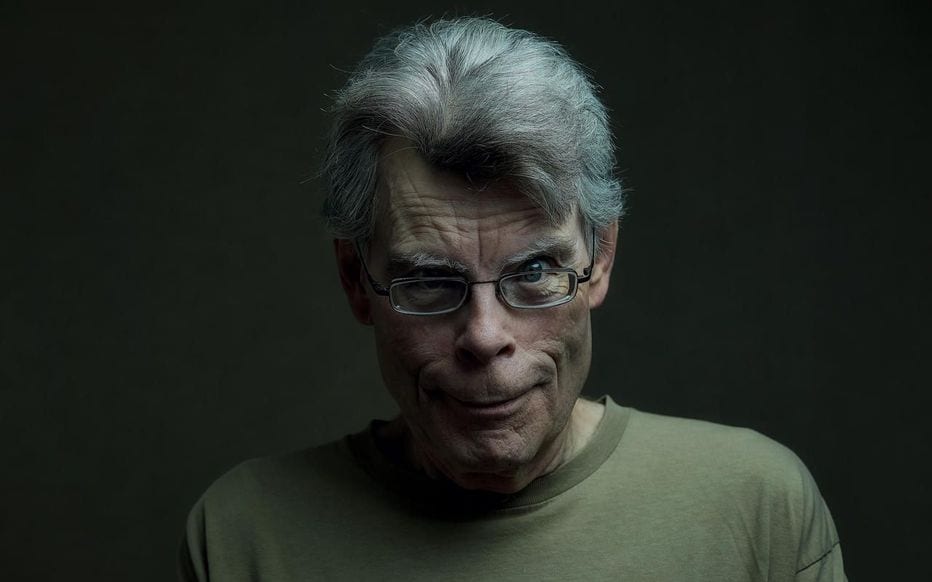The Questions
What is the character’s name? Age? Gender?
Pippa, ??, Female
What does the character look like?
Brunette (possibly), but she’s dyed her hair so many colours she doesn’t remember the original anymore, tattoos adorn her entire body, but despite a lithe and attractive compact form she normally wears relaxed clothes, jeans, and loose t-shirts to hide it.
Her face is habitually fixed in a wide grin, eyes somewhere between hazel and amber, always twinkling with a mischievous light. Some light make-up on her eyes, maybe lipstick if she’s dressing up or trying to impress.
Both her ears have at least two piercings while her tongue has a single metal bar in through it.
What’s in the character’s purse or pockets?
Probably her wallet, keys, and phone at a minimum. Also, a pen or 3, a notepad, a lighter, coins distributed through pockets, and at least 1 condom.
What’s the character’s favorite thing to do?
Chilling with friends, making people laugh, and being around other like-minded people (sometimes all at the same moment).
What does the character hate?
Liars, bigots, and hypocrites. Also being ignored or shunned.
What matters to the character more than anything in the world?
Her friends and the people she loves. She would do anything for them and wants them to know that they can rely on her to be there for them.
====
Writing Task
Using the character you created above, write a conversation or a situation where this person cannot get what they want. You may find other characters emerge from this—let it happen. Try opening the scene at the main point of tension—for instance, in the middle of a fight— and fill in the necessary details as the scene plays out.
A Beginning
Pippa practically bounced through the opening, feeling her heart skip a beat as the heavy pub door thumped shut behind her. The packed bar assailed all her senses, the frigid air outside replaced by the blast of voices, loud music, heat, stale smell of sweat, and smoke. Pausing on the threshold, her breath caught in her throat as a room of eyes turned to stare, judge, and undress her.
Pushing up on her tiptoes, she tried to survey the room. Not an easy task, despite wearing her boots, she was still a full head shorter than most of the crowd. Cigarette smoke hung like a mist around the tables, causing her eyes to prickle. Still, she felt a fractional easing in her shoulders when she saw the room was full of familiar faces. This was her bar, and these were her people.
The table across from the entrance caught her eye, and hands, beers, and bottles were raised in greeting. “Pippa!” came a chorus of voices, and numerous hands beckoned her over. She raised her own in an overly dramatic wave, a goofy grin on her face. Her inner monologue rolled its eyes at her. “You look like an idiot.” She instantly regretted the action. But everyone seemed to grin and laugh in appreciation.
“They’re laughing at you.”
“Shut up,” she retorted internally, “not tonight.”
Blinking away the tears from the smoke and swallowing down the tingling nerves, she forced herself to walk. Three steps in, and she froze, through the haze, one face, in particular, snapped into focus, and she locked up entirely.
He was talking excitedly, raising a beer, nodding his head, his free hand moved like a conductor, mapping out whatever he was saying. He, unlike the others, seemed oblivious to everything and everyone around him, his audience Mark and a girl, an attractive one she noted with a pang of jealously, nodding along with him.
He wasn’t always here, and she’d only met him a few times. But she’d known two things immediately, one, she liked him, more than just for the night, he made her laugh, and two, she relaxed around him. Something so rare with a guy she’d sort of forgotten it was possible. She let a practiced grin split her face and aimed to strut with what she hoped looked like a confident, sexy walk up to the table.
Men tried to subtly watch her as she moved by, failing spectacularly. She felt elated, giddy, but every ounce of tension that had faded ratcheted up higher and higher as she approached the table. At the last moment, before reaching the table. She stood over and rested her hand on his upper arm to get his attention. He started and turned in surprise his eyes locking onto her’s, a big smile spreading on his face.
“Hey! Pippa, long time no see”
“Hey,” her shoulders relaxing, “great to see you too…”
=============
A parting
“I’m telling you this complete, fucking bullshit,”
“I…”
“Bullshit!”
“Look, I’m sorry, I promise you, this is just a temporar..”
“Bullshit!”
He recoiled as if slapped, the anger in her voice tearing through his words and chest like a hammer. He felt himself shrink inside, shoulders bunched and aching from tension, his stomach churned and spat acid as his traitorous mouth dried up in a panic.
His eyes focused and locked onto her forearm tattoo of a cat. Desperate to concentrate on something but also terrified to take on the full heat of her gaze, even then, he could feel her anger radiating off her in waves. Each thundering heartbeat in his ears boomed with guilt and shame.
“You know that I love you,” he started to say, hating the whining quality that had filtered into his voice.
“Do, you?!” he saw her knuckles whiten, “Because you pay more attention to that fucking thing than me!”
Her finger angrily stabbing at his computer screen.
Petulant resentment flared.
“I’m studying to get a better job! it’ll help us both out of this situation!” he tried to meet her eye.
“It’s not going to be forever, then we can move to a nicer place, a better place.”
Pippa snorted, her lip curling up. She stood over him as he sat coiled in the chair, every nerve and muscle simultaneously ice and fire.
“Do you know how long you’ve been saying that?”
“…”
“I’m done, James, I’m leaving, I’m going to walk out that door, and if I do, you won’t see me again.” her eyes were fire. “Do. You. Understand?”
The silence lasted a breath, then two. A million responses left unsaid.
Then in an instant that he would replay forever, she was turning and striding away, her back straight, fists clenched at her sides, rage and pain flowed out from her body language like a cloud. The edge of her tattoos seemed to stand out like sharp lines against her pale skin, like even they were taught with anger and disgust at him.
His bedroom door slammed so hard behind her that the frame shuddered. For a moment, his vision blurred, the sound of her heavy boots marching off down the corridor.
He heard a strangled noise leave his throat, even as his body slumped in defeat as he listened to the finality of the front door being slammed shut.
He stared blankly at the door for an unknowable amount of time. Part of him screaming to get up and run after her, part of him saying that this wasn’t his fault. His neck creaked and popped when he finally turned to look at the computer screen, the software problem still waiting for him.
He forced himself to rotate the chair. To focus. He sat at his computer, hunched and alone. Here was something he could resolve. No pain, no sacrifice or compromise, desperately trying to ignore the smiling faces of the couple staring accusingly at him from his desktop background, he started to type.





